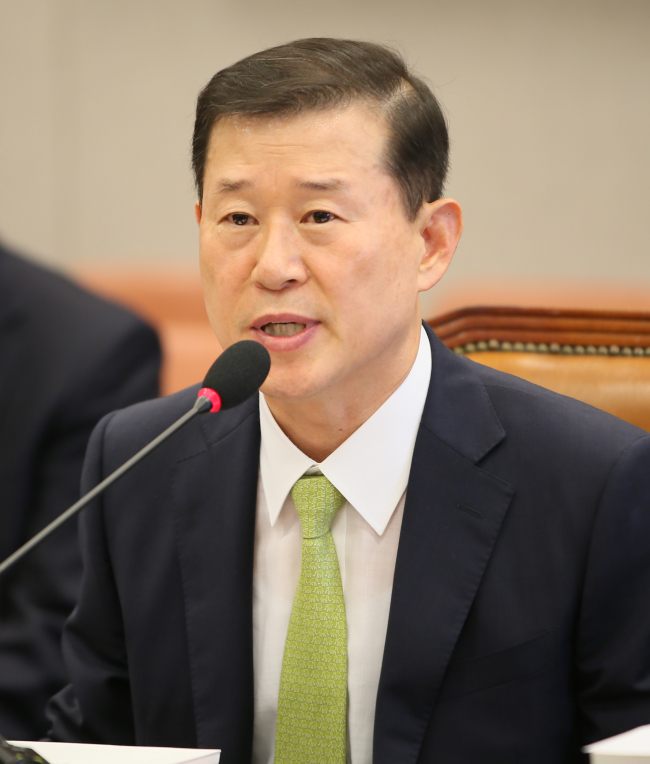The nominated head of the nation’s top human rights watchdog faced a barrage of criticism at his confirmation hearing Tuesday, as opposition lawmakers accused him of lacking experience and slammed the “shady” selection process.
The opposition contended that Lee Sung-ho, former judge at Seoul Central District Court, was not fit to improve the stature of the National Human Rights Commission that has already deteriorated under his predecessor Hyun Byung-chul.
During Hyun’s six-year tenure, ridiculed as “lost years” by his opponents for compromising the agency’s political correctness and independence, the watchdog’s international reputation suffered a setback. It is now on the brink of losing the top A grade that it has enjoyed since 2004.
The International Coordinating Committee of National Human Rights Institutions, a global network, forwent assessment of the watchdog in 2014 and 2015, a move, many observers said would lead to downgraded ratings.

“It is pretty obvious that Lee might be yet another version of Hyun who acted as a puppet of Cheong Wa Dae,” said NPAD floor leader Lee Jong-kul. “Despite the ICC’s repeated request for transparent nomination for the post, Lee’s selection was neither widely discussed nor transparent,” said Rep. Lee.
NPAD lawmakers also questioned the former judge for his lack of experience in human rights and his past court decisions that were deemed offensive to sexual minorities while he served as a judge in 2013.
According to reports, Lee had asked a defendant, who had applied for a gender change, to submit photos of sexual organs to verify his request although the photos are not mandatory under court regulations.
His predecessor, Hyun, was also heavily criticized for making scores of controversial remarks including “Does sexual discrimination still exist in this country?” and “Korea has turned multicultural ... what with ‘(derogatory term for African-Americans)’ living amongst us.”
Lawmakers also pointed to the agency’s lack of efforts to embrace diversity and transparency of its composition, or “Paris Principle,” a minimum standard which human rights agencies should meet to be considered credible, and more importantly, to be rated A grade.
Mindful of mounting criticism of the agency, Lee vowed to secure A-grade status and push for revising relevant laws to ensure the agency’s diversity and transparency, if confirmed. He also pledged to compensate for his lack of experience in human rights by reaching out to minority groups.
“If confirmed, I will try to hear the voices of the marginalized and underprivileged. I will do my utmost to expand my experience in diverse human rights issues relating to immigrant workers, refugees, sexual minorities and physically challenged,” Lee said during the hearing.
The nominee’s appointment, however, is not subject to parliamentary approval.
Meanwhile, most experts viewed his appointment as “inappropriate.” According to a survey by NPAD Rep. Choi Min-hee on 134 legal experts, more than 80 percent of respondents said the process for Lee’s nomination has been problematic.
By Yeo Jun-suk (jasonyeo@heralcorp.com)










![[Hello India] Hyundai Motor vows to boost 'clean mobility' in India](http://res.heraldm.com/phpwas/restmb_idxmake.php?idx=644&simg=/content/image/2024/04/25/20240425050672_0.jpg&u=)








